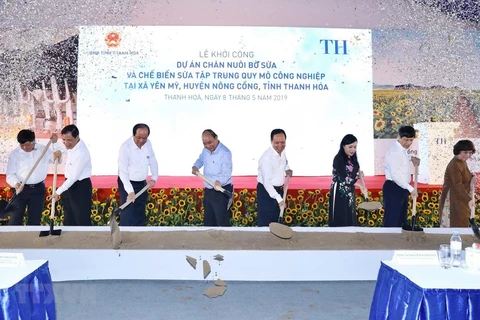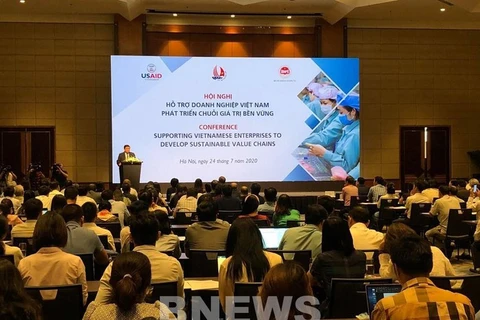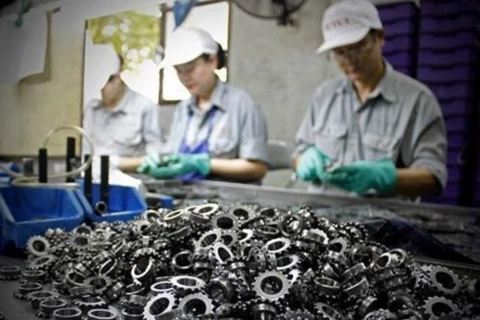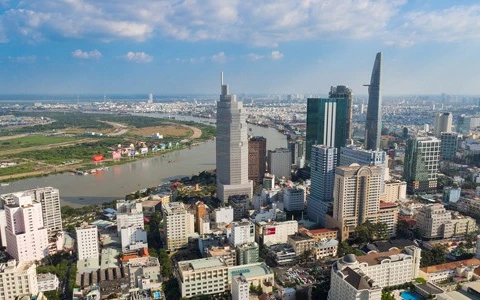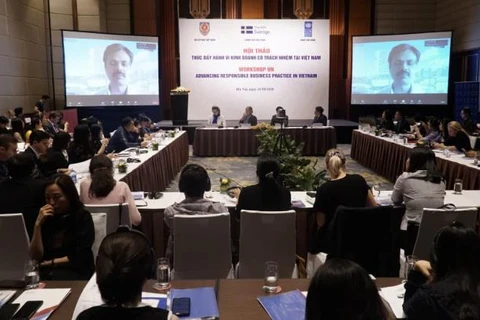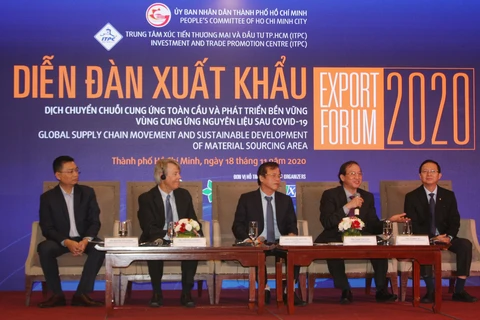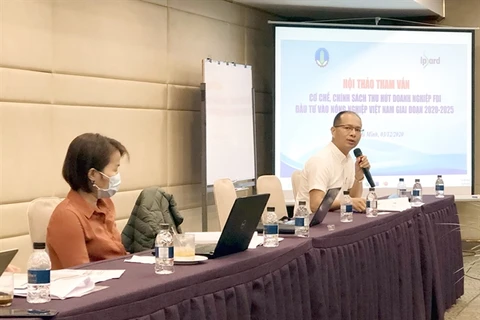 Enterprises and economists discuss issues related to sustainable development of the Mekong Delta region at the Mekong Connect - CEO Forum in Dong Thap province. (Photo: VNA)
Enterprises and economists discuss issues related to sustainable development of the Mekong Delta region at the Mekong Connect - CEO Forum in Dong Thap province. (Photo: VNA) Dong Thap (VNS/VNA) - The Mekong Delta needs to develop value-added agricultural products to enter global value chains, officials have said.
Amid deep global integration, trade links are a driving force for economic development, said Le Quoc Phong, Secretary of the Party Committee of Dong Thap province.
With an open economy, Vietnamese-made goods will face strong competition from foreign-made goods.
Phong spoke at the Mekong Connect - CEO Forum held in Dong Thap province earlier this week.
Le Minh Hoan, Deputy Minister of Agriculture and Rural Development, pointed out that application of scientific and technological advances in agricultural production are needed to create more value-added products.
Enterprises are encouraged to co-operate with State agencies in science and technology research so they can produce quality products, Hoan said.
In the agro-aqua-forestry sector, exports hit more than 40 billion USD this year, he said.
Nguyen Minh Hai, Vice Chairman of the European Chamber of Commerce in Vietnam (EuroCham), said there are 39 Vietnamese Geographical Indications (GIs) in the EU, including Bac Lieu salt and Vinh Kim star apples from the Mekong Delta region, providing an adequate framework for further promotion of imports of quality products.
The EU maintains some of the highest sanitary, phytosanitary, origin tracing, and sustainable standards in the world.
Hai highlighted the importance of raising local standards and developing new value-added products which can compete internationally, particularly in the EU market with its population of 450 million.
The EU-Vietnam Free Trade Agreement (EVFTA), which came into effect in August this year, has paved the way for increased trade between the EU and Vietnam.
The elimination of tariffs under the EVFTA is expected to benefit key export industries, including agricultural products, but technical barriers to trade are expected to be raised, imposing challenges for Mekong Delta products and services to penetrate the EU market.
Mary Tarnowka, executive director of AmCham Vietnam in HCM City and Da Nang, said many AmCham member companies like Cargill, Coca-Cola, Suntory Pepsi and Pharmacity already have extensive operations in the Mekong region.
Agricultural products from the Mekong region, like shrimp, catfish, dragon fruit and mango, are now exported throughout the US.
The Mekong region has the potential to attract considerably more investment and sustainable growth. It has some of the richest natural renewable energy resources in the world, such as solar and wind.
AmCham member companies are eager to partner in renewable energy development in the Mekong region – from supply of solar panels and wind turbines to project development and energy generation.
Vu Tien Loc, Chairman of the Vietnam Chamber of Commerce and Industry (VCCI), said localities in the Mekong Delta need to invest in sustainable agro-economic development, as well as infrastructure to improve connectivity in the region and HCM City economic hub.
The fifth Mekong Connect - CEO Forum attracted 700 enterprises, Government leaders, and domestic and foreign experts who have concerns and interests related to the Mekong Delta.
The forum was organised by the ABCD Mekong regional network including Can Tho city and provinces of An Giang, Ben Tre, and Dong Thap, in co-ordination with the Business Association of High Quality Vietnamese Products and the Leading Business Club./.
VNA
